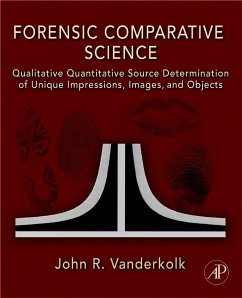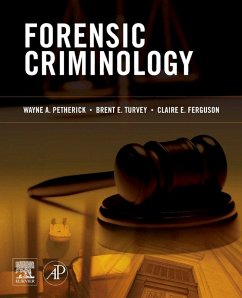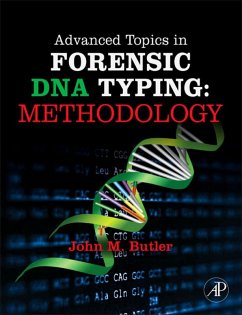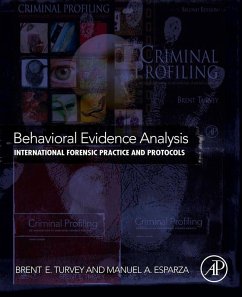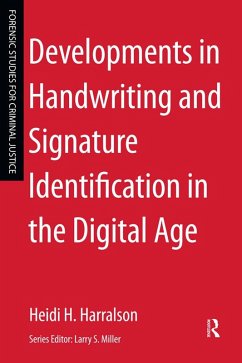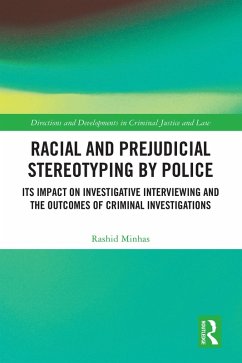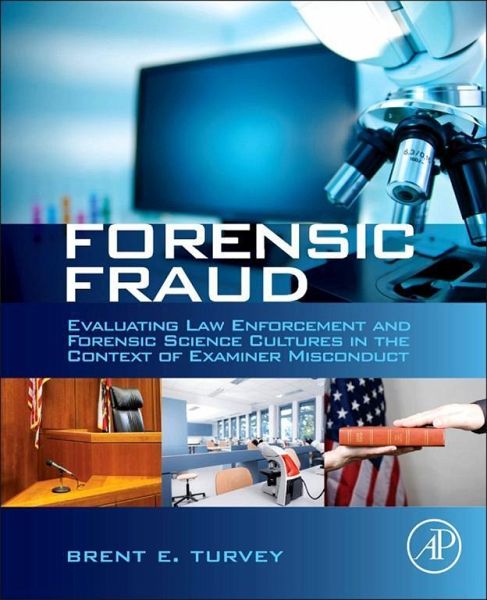
Forensic Fraud (eBook, ePUB)
Evaluating Law Enforcement and Forensic Science Cultures in the Context of Examiner Misconduct
Versandkostenfrei!
Sofort per Download lieferbar
55,95 €
inkl. MwSt.
Weitere Ausgaben:

PAYBACK Punkte
28 °P sammeln!
Forensic Fraud is the culmination of 12 years of research by author Brent E. Turvey. A practicing forensic scientist since 1996, Turvey has rendered this first of its kind study into the widespread problem of forensic fraud in the United States. It defines the nature and scope of the problem, the cultural attitudes and beliefs of those involved, and establishes clear systemic contributors. Backed up by scrupulous research and hard data, community reforms are proposed and discussed in light of the recently published National Academy of Sciences report on forensic science. An adaptation of Dr. T...
Forensic Fraud is the culmination of 12 years of research by author Brent E. Turvey. A practicing forensic scientist since 1996, Turvey has rendered this first of its kind study into the widespread problem of forensic fraud in the United States. It defines the nature and scope of the problem, the cultural attitudes and beliefs of those involved, and establishes clear systemic contributors. Backed up by scrupulous research and hard data, community reforms are proposed and discussed in light of the recently published National Academy of Sciences report on forensic science. An adaptation of Dr. Turvey's doctoral dissertation, this volume relentlessly cites chapter and verse in support of its conclusions that law enforcement cultural and scientific values are incompatible, and that the problem of forensic fraud is systemic in nature. It begins with an overview of forensic fraud as a sub-type of occupational fraud, it explores the extent of fraud in both law enforcement and scientific employment settings, it establishes and then contrasts the core values of law enforcement and scientific cultures and then it provides a comprehensive review of the scientific literature regarding forensic fraud. The final chapters present data from Dr. Turvey's original research into more than 100 fraudulent examiners between 2000 and 2010, consideration of significant findings, and a review of proposed reforms to the forensic science community based on what was learned. It closes with a chapter on the numerous crime lab scandals, and closures that occurred between 2010 and 2012 - an update on the deteriorating state of the forensic science community in the United States subsequent to data collection efforts in the present research. Forensic Fraud is intended for use as a professional reference manual by those working in the criminal system who encounter the phenomenon and want to understand its context and origins. It is intended to help forensic scientist and their supervisors to recognize, manage and expel it; to provide policy makers with the necessary understaffing for acknowledging and mitigating it; and to provide agents of the courts with the knowledge, and confidence, to adjudicate it. It is also useful for those at the university level seeking a strong secondary text for courses on forensic science, law and evidence, or miscarriages of justice. - First of its kind overview of the cultural instigators of forensic fraud - First of its kind research into the nature and impact of forensic fraud, with data (2000-2010) - First of its kind typology of forensic fraud, for use in future case examination in research - Numerous profiles of forensic fraudsters - Review of major crime lab scandals between 2010 and 2012
Dieser Download kann aus rechtlichen Gründen nur mit Rechnungsadresse in A, B, BG, CY, CZ, D, DK, EW, E, FIN, F, GR, HR, H, IRL, I, LT, L, LR, M, NL, PL, P, R, S, SLO, SK ausgeliefert werden.





